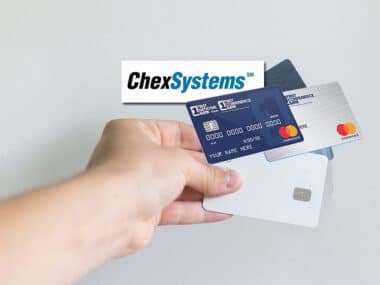Making a little extra money always sounds like a nice idea, especially when you’re short on cash. But some “easy money” promises are actually scams in disguise. These easy money scams lure in victims by promising them little to no commitment or investment for a huge profit.
As soon as a victim bites and begins to get involved in one of these scams, the rug is pulled out from under them. Their money, personal information, or other valuable items are taken without any promises fulfilled.
In most cases, if a deal involves sending out a money order with the promise of more money back or describes another complicated process, it’s a scam. Offers that sound too good to be true may be scams but not all easy money scams are easy to spot. Reviewing some of these common scams, how they’re pitched, and ways to identify them may save you from becoming a victim.
Table of Contents
Common “Easy Money” Scams to Watch Out for
In the online age, scammers hide their identity behind computers and have easy access to thousands of potential victims. Many of these scammers have perfected their easy money scams so they sound like reasonable and legitimate offers.
Even the savviest and most skeptical consumer can fall victim, losing money, personal information, and security. It’s important to understand the warning signs that indicate easy money is just too easy.
Cashier’s Check Scams
A cashier’s check scam is easy to fall for because it sounds simple and rational. A scammer, usually disguised as someone interested in buying goods you have for sale, offers to give you a cashier’s check, money order, or to wire money directly to your account.
You’re asked to send what you’re selling as soon as the scammer confirms this action is completed. However, after you send the goods, the wire transfer is cancelled or you find out the money order or cashier’s check is fraudulent. This easy money scam is dangerous because if the scammer gets your bank information when they are supposedly going to wire transfer money to you, they have access to your account.
To avoid becoming a victim of this scam, only allow for payment from a seller in this manner if you know the person. Contact the financial institution that issued the money order or cashier’s check to verify its validity before sending the goods. Wait for the check to clear before you proceed with sending your goods and always save the documents related to your transaction.
Charity Scams
Charity scams prey on your generosity and desire to do good for the world. A scammer poses as a wealthy foreign resident who needs assistance to give money to a charity in the United States. The scammer asks for your bank account information to wire you money so you can keep a percentage and give the rest to the charity. However, once you give your bank account information, your account is emptied.
To avoid becoming a victim, never give out your bank information online, especially to someone you don’t know. Protect your account details at all costs and don’t engage in wire transfers with strangers.
Foreign Wealth
In a foreign wealth scam, the scammer poses as a wealthy foreign resident who simply needs a U.S. bank account to transfer money from his own country. The scammer may ask for your bank account information or money to pay transfer fees. You never receive any money and you may discover a $0 account balance soon.
Don’t trust anyone you don’t know online. Never give out your bank account information or send money to someone you don’t know, especially if you’ve been solicited.
Inheritance Scams
Inheritance scams are the oldest in the book and the most common ones involve a “Nigerian prince” who knows your long-lost relative. This relative just happens to have left all their money to you and the prince needs your help to get you the lump sum.
The scammer asks for your bank account information or for you to send money to cover the bank fees. When you provide money or bank information, you don’t receive anything in return, except maybe an empty account.
If you receive an email offering money, ignore it and don’t respond. Never send money to someone you don’t know, even if they claim to know a relative.
Investment Scams
Several common easy money scams involve investments. A scammer poses as a stock trader or investment manager and offers you the opportunity to invest in an inside deal that’s guaranteed to make money. Once you give the investment banker your money, they disappear or your investment is lost.
Don’t engage with any investor who guarantees a certain profit. Never provide your information or money to someone you don’t know personally and avoid getting involved in schemes that make no sense.
Loan Scams
If you don’t qualify for a traditional loan, scammers may prey on you through loan scams. They’ll agree to give you a loan if you pay upfront fees or provide your personal information. A loan may never be provided or in some cases, the loan terms change so you end up owing much more than you agreed upon.
Avoid these sneaky scams by researching the lender. Always get loan terms put into writing and don’t give your personal information unless you’re positive a lender is legitimate.
Lottery Scams
In a lottery scam, you receive correspondence from a “lottery official” who informs you there are winnings you’re entitled to but haven’t claimed yet. They only need your bank account information to wire you your money or they may even ask you to pay taxes and fees upfront. When you provide your information or money, you never see the winnings.
Lottery winners are never asked to provide payment up front, so this should be a red flag. This scam is similar to an inheritance scam and you can avoid it by never sending money or giving your bank account information to a person you don’t know.
Refund Scams
In a refund scam, you’re told you’re entitled to a refund from an old credit card, utility company, or unknown source. All that’s needed is your bank account information to wire your refund, or they need money to cover the transfer fees.
When you provide these fees or your account information, no money comes and the company suddenly disappears. Avoid this scam by doing your research. To receive legitimate refund money, you should never have to pay money.
Work From Home Scams
This easy money scam involves fake job postings on legitimate job sites, such as Indeed or Cragislist. These ads entice you with a remote job opportunity that requires only a small investment or your personal information. Once you provide this, you never hear from the “company” again. In some cases, you may land a job and get paid for a bit, but suddenly the paychecks stop coming or start to bounce and you’re still working.
Work-from-home job ads that offer high compensation for no skills or experience are red flags. You shouldn’t need to provide your bank account information, money, or extensive personal information to obtain a remote job.
How to Recognize “Easy Money” Scams
To avoid falling victim to one of these scams, be diligent in your research and protective of your identity and money. Be sure you:
- Don’t respond to emails or letters that seem suspicious.
- Never provide personal information to someone you don’t know.
- Research companies, email addresses, and website domains.
- Don’t send money to a company or person you don’t know.
- Rationally consider if an offer is too good to be true.
You may feel you have a handle on scammers and can’t be duped. However, some of the latest easy money scams are advanced and complicated, so even the most skeptical consumer may fall victim. By recognizing these scams right away, you can avoid becoming the victim of fraud.
Image Source: https://depositphotos.com/





